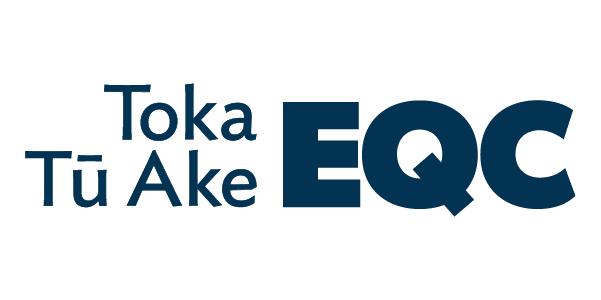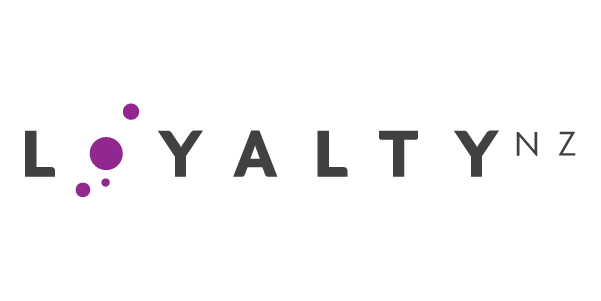Welcome to The Instillery, where fresh thinking and digital strategy are blended together to instill belief and pour capability into the bloodstream of businesses.
We deliver top-shelf, refined technology so potent, it’s future-proofed.
We are here for the next generation of entrepreneurs, visionaries, and idealists. To breed a culture of empowerment over dependency that elevates technology, people, and processes.

Our Process
Distill
Instill
Repeat
Distill
We craft a powerful technology suite for your business
We distill complex problems into plain language and business outcomes. Crafting the perfect blend of leading global tech solutions for your needs, ambitions, your team and your environment.
Instill
We instill confidence, action and capability in your business
We instill capability in your hands, at your place, at your pace, working alongside you as your trusted co-pilot. Instilling fierce belief in you, your people and what your business is capable of.
Repeat
We never ‘set and forget’
We iterate, improve and future-proof so you’re always running at speed. Working with you to build your innovation engine to deliver faster and more efficiently as part of your digital transformation ambitions.
Explore
Cloud
Modern Work
Connectivity
Managed Services
Security
Back
Or
- Develop my public cloud strategy
- Evaluate my move to cloud
- I want a best practice landing zone for cloud
- I want to migrate to cloud
- I want you to manage and operate my cloud platform
- Optimise my apps for cloud using serverless and PaaS
- Unlock my businesses data to enable data-driven insights
- I want to work with an Azure specialist
- I want to work with an AWS specialist
Cloud
Cloud is the fuel that powers business innovation and digital transformation. The Instillery is NZ’s number one cloud partner with a focus on outcomes, with shared risk and commitment to business goals.
Our AnyCloud philosophy sees us as partners of AWS, Microsoft Azure and Google Cloud Platform as well as providing VMware based hybrid and private cloud solutions. We use an ecosystem of leading tools and services to connect, protect, secure, automate and manage cloud platforms.
Whatever the destination for your business, we are there to maximise your impact by empowering your team with our unique co-pilot approach to service delivery. We’re proud to have been part of building DOC’s Pest free 2050 initiative, Auckland Council’s Smart Growth Data portal, containerising TSB Bank's web platform and building a scalable cloud environment for Vault Intelligence's SaaS platform to protect remote workers, and would love to be part of your story too!
Cloud Strategy
Fuel your cloud ambitions with a comprehensive strategy
With organisations hungry to realise the benefits of cloud, a clear strategy provides the focus and aligns stakeholders with business priorities. Our cloud strategy service involves a number of workshops to provide a high-level strategy canvas for cloud adoption in your organisation. With a focus on aligning stakeholders, agreeing on priorities and benefit realisation, you have a clear picture of how cloud will enable your business, and map a path to cloud success that is unique to your organisation.
Cloud Discovery
Plan your journey to cloud with a trusted co-pilot
Making the right choice when embarking on a move to public cloud can be the determining factor in the successful execution of a digital strategy. We pride ourselves on our methodology and toolset which result in data-driven contextual insights. Our Cloud Discovery team are specialists in delivering executable cloud strategies tailored to our customers. No more guesswork. No wasteful overprovisioning. Just knowing that you’re making the best decisions for tangible business results.
Cloud Landing Zone
Land on a solid platform to build your cloud infrastructure
Having a best practice cloud environment configured and baselined is the first step in preparing to build new apps, or move existing ones to the cloud. By getting the structures in place at the start, your business can operate and scale at pace without second-guessing yourself or looking over your shoulder for problems to start occurring. Our cloud landing zones are built to very latest vendor best practices, coupled with our depth of experience to get the right design for your needs whether you’re a startup, a corporate or a government agency.
Cloud Migration
Move today with NZ’s public cloud leader
Migrating to public cloud with The Instillery provides you with the confidence to move fast while getting the proven experience The Instillery have acquired through some of NZ’s largest and most challenging cloud migrations. Starting with a proven, data-driven approach, we will assess your workloads, build you a secure cloud landing zone and migrate your workloads using Microsoft’s latest cloud migration tools. Our co-pilot approach will empower your team to adopt and embrace the cloud with infrastructure automation using code templates.
Cloud Care
Maximise cloud success with proactive cloud management
Public cloud underpins the delivery of critical applications to internal or external users. Monitoring, optimising and securing your cloud platform on an ongoing basis improves performance while removing unnecessary costs.
With our team of cloud experts working alongside your team with our unique co-pilot approach, your team remains empowered and in control, as your cloud story builds.
Our service uniquely provides both support for day-to-day operations, while we maintain a backlog of enhancements and proactively improve your cloud environment month by month.
Cloud App Modernization
Bringing your Apps into the cloud era
Your organisation, like many, likely has a raft of applications spanning from decades of IT practice. Call them monoliths, or label them as technical debt, they are likely costly, complex in nature, and stifle the type of innovation businesses look for with digital services.
Our Cloud App Modernization takes the business value in these applications, such as the processes and data you have built up over years, and replatforms them on cloud native services, opening them up to opportunities to innovate and optimize, while reducing costs and risk. We work closely with your team to identify candidates for modernization that align with business goals, and deliver a demonstrable return on investment.
By bringing your apps into the cloud era, we bring new life to tired systems.
Data Platforms & Analytics
Secure and scalable data services
Unlocking valuable data in your business can provide immediate benefits and impact. Rather than focusing on industry lingo like “big data” which often comes at a big cost, our data services take the approach of starting small with subsets of business data and realistic use cases. Using Infrastructure as Code and DataOps practices, we are able to rapidly establish a platform that provides a catalogue for business users to consume for analytics and intelligence or functionality for applications or APIs. Security and governance processes can be baked right into the catalogues for confidence that you have your business data under control.
Private & Hybrid Cloud
Meeting local need with global capability
Our private and hybrid cloud solutions provide maximum flexibility where you aren’t yet ready to go all in on public cloud. Whether you have application constraints, licensing challenges or need to use capital expenditure, our solutions will provide you a solution for today, with a pathway to the future. Whether they are built and hosted by us (as-a-Service) or handed over to your operational team, you are provided a robust solution, that is pre-designed to enable you to burst into public cloud for capacity or specialised services that you can’t build yourself.
If your business needs a strategy that bridges the gap between where you need to be today, and where you want to be tomorrow, our private and hybrid cloud solutions provide the perfect mix.
Azure Services
Plan your journey to cloud with a trusted co-pilot
As holders of Microsoft’s Windows Server and SQL Server Migration to Microsoft Azure advanced specialization and winners of the Microsoft Migration Partner of the Year award, you’re in good hands with our team of cloud experts.
Our Azure services offer customers a full spectrum of services depending on the customer's requirements. These services are built upon standardised building blocks, providing quicker time to delivery and certainty around the outcome.
These services can be provided as a complete customer journey from evaluating your readiness to migration and finally to the modernisation of your cloud applications. We incorporate expert advice, best practice Azure cloud design, organisational readiness assessments, cost optimization, Azure secure design and build coupled with automation using infrastructure as code into delivering these services.
The Instillery Co-pilot approach delivers value alongside customers and their teams, upskilling and collaborating through the delivery process. This prepares customer teams for operating and consuming Azure cloud resources, and ensures capacity and capability are built throughout the delivery of the services.
Case Studies
 |
AWS Services
Plan your journey to cloud with a trusted co-pilot
Our AWS services offer customers a full spectrum of services depending on the customer's requirements. These services are built upon standardised building blocks, providing quicker time to delivery and certainty around the outcome.
These services can be provided as a complete customer journey from evaluating your readiness, through to migration and finally, to the modernisation of your cloud applications. We incorporate expert advice, best practice AWS cloud design, organisational readiness assessments, cost optimization, AWS secure design and build coupled with automation using infrastructure as code with CI/D pipelines into the delivery of these services.
The Instillery Co-pilot approach delivers value alongside customers and their teams, upskilling and collaborating through the delivery process. This prepares customer teams for operating and consuming AWS cloud resources and ensures capacity and capability are built throughout the delivery of the services.
Case studies
| |
 |
- I want to understand the benefits of M365 for my business
- I want to move to M365
- I need help managing M365
- I want to collaborate using voice and chat
- I want to migrate to Windows 11
Modern Work
With expectations about how we work changing, organisations need to ensure that their staff are able to work productively regardless of where they are or which device they are using.
The Instillery has a proven track record designing and implementing best-in-class Modern Workplace solutions for private enterprise and public sector customers. The outcomes and operational flexibility required by a small 10 seat operation are the same as a large 10,000 seat enterprise and we are the partner with the knowledge and capability to support the full range of customer journeys.
M365 Discovery
Define your collaborative workplace
Choose how your workforce will achieve their productivity goals by selecting the right digital tools to connect and support employees wherever they are. Improve engagement and increase collaboration by combining communication, productivity and security products together into a single, seamless experience.
M365 Migration
Stay ahead of the curve
We manage, communicate and build your end-user experience for the future. Transitioning to a platform which enables your employees to quickly find the information they require and collaborate effectively, all while experiencing an uplift in security posture is our goal with this service and our track record speaks for itself.
M365 Management
Rich toolset, simple management
Accelerating adoption and reducing rework by taking all the complexity out of Microsoft 365. We share a single administration portal to define guide rails, policies and proactively define the application experience. Helping you adhere to industry regulations, configure user settings and collaborate with partners whether they’re internal or external.
MS Teams
Collaboration without compromise
Teams is the new interface for M365 productivity. Chat, meet and collaborate anywhere on any document. Designed to enable groups to work together by aggregating all content in one application, Microsoft Teams surfaces data relevant to you and enables knowledge of a subject matter to be built quickly by integrating individual contributions from all channel members.
Microsoft 365 enables remote work to be performed by all employees and Teams assists with driving a high rate of adoption by using robust communications and putting the human element back into the remote team.
MS Windows
The best Windows keeps getting better
Businesses need an added layer of security and manageability as companies move to remote work. Windows 11 enables advanced features to support this transition, including remote updates, management, VDI and intelligent malware protection.
New Windows as a Service update delivery options keeps Windows 11 functioning at the latest patch level to ensure security and functionality remain at the highest level.
- I want internet and WiFi for my business
- I want cloud optimised, modern business connectivity
- I want private connectivity to the public cloud
- I want an advanced cloud network
Connectivity
As services move to the cloud and users become increasingly mobile, the traditional way of constructing a business network becomes obsolete. Unleashing the benefits of UFB, we’ll provide you with the quickest and safest path to the cloud, providing secure connectivity everywhere.
You’ll be able to deploy new services and applications quicker and drastically simplify operational complexity in the wide area network (WAN).
NaaS
Gain agility with Network as a Service.
Network management was historically an engineer’s enigma, a complex realm trapped behind cryptic screens and dashboards. This created a lack of agility and visibility for organisations that wanted simple outcomes such as connecting users to the internet and applications. Fortunately, it doesn’t need to be that hard as the era of unnecessary complexity for networking ends here.
Our NaaS is your gateway to a dual offering of Wifi-as-a-Service or Network-as-a-Service. Tailored to your requirements, we furnish either seamless wifi or a comprehensive end-to-end network package, complete with internet and expansive WAN links. Monitoring your network is effortless with our accessible web dashboard, granting you full visibility into its activities. Streamlined and results-driven – this is the essence of true connectivity.
SD-WAN
Break free from old style connectivity
Software-Defined Wide Area Networking (SD-WAN) offers organisations the quickest and safest path to the cloud, providing secure connectivity everywhere. Connecting your users and offices to cloud services is critical to provide the best experience and ensure visibility into what's going across the network. Utilise next-gen network technology to rocket into the cloud.
Megaport
Connect the services that power your business
Megaport offers unparalleled flexibility when it comes to interconnecting services and locations. The combination of a carrier backbone, interconnecting data centres and cloud providers, with Software-Defined-Networking, provides your business with high capacity connections that are scalable at the touch of a button. Our deep expertise in cloud network and SD-WAN solutions makes us the perfect partner to provide Megaport services and consulting.
Transit VPC/VNET
Cloud networking made easy
On the surface cloud networking looks simple, but as soon as you scratch the surface and want to integrate your public cloud solution with your core network, things start to get a bit more complicated. We design and deliver cloud networking solutions day in, day out, with experience integrating most major firewall vendors into a transit VPC or VNET design. If you’re stuck deciding on the best option for your business, we can help you out with cloud native designs, deploying virtual firewalls and blending the two.
- Support my employees
- Completely manage all my IT needs
- Support my applications
- Procure and manage my devices and OS
- Patch, maintain and monitor my servers
- Deploy and/or manage my network connectivity
- Manage and optimise my cloud platform
Managed Services
With the expansion of technology into every facet of our own and our customers’ lives, both the complexity of the IT function and the workload of the in-house IT department has grown exponentially. Whether it’s managing and supporting applications, cloud platforms, networks or services, by partnering with The Instillery, you’ll free up time and resources to go beyond the essential but expected tasks involved with keeping the organisation up and running and into a more rewarding territory, such as contributing to innovation and customer satisfaction.
From supporting general enquiries right through to outsourcing your entire IT team, The Instillery handles your needs with a level of efficiency and cost-effectiveness impossible to replicate in house. We have the scale to give you access to enterprise-grade resources and know-how but we’re still lean enough to be agile, personable and highly responsive.
Managed Support
24x7 support for your users throughout the year
By managing the support of multiple customers, we’re able to deliver support for your users more efficiently than smaller, in-house teams are able to. You name it, we’ve seen it - and we know how to fix it.
Managed I.T.
Let us completely manage your IT needs
With the expansion of technology into every facet of our own and our customers’ lives, both the complexity of the IT function and the workload of the in-house IT department has grown exponentially. By partnering with The Instillery, you’ll free up time and resources to go beyond the essential but expected tasks involved with keeping the organisation up and running and into more rewarding territory, such as contributing to innovation and customer satisfaction.
The Instillery handles the day-to-day IT needs of its clients with a level of efficiency and cost-effectiveness they find impossible to replicate in house. We have the scale to give you access to enterprise-grade resources and know-how but we’re still lean enough to be agile, personable and highly responsive.
Applications
Streamline support for your applications
In the modern landscape, each organisation leans on up to 15 vital business apps daily. Yet, this reliance breeds disjointed support, user exasperation, productivity dips, and downtime spikes—suffocating innovation and expansion. Be it SaaS, legacy revamps, or custom builds, the fix is singular: a sleek support service via one seamless link.
Desktop
Managed to your expectations
The past decade revolutionised the workday encounter unlike ever before, reshaping consumer expectations of business services. The old norm of rigid devices and exhaustive interface setup is yielding to a user-driven approach, boosting productivity remarkably. Allow us to aid you in crafting the ultimate user experience, bringing your vision to life and delivering continuous support for sustained triumph.
Server Care
Keeping your critical systems running at their best.
Some of our core business applications operate on servers, whether they are hosted in the public cloud, a local data centre of on-premise at the office. By keeping servers up to date, monitoring their performance and fixing things when they go wrong, your business can stay running smoothly and securely.
Server Care provides the ultimate care package for these servers, looking after the hypervisor, core operating system and key applications. Our best in market support, with unparalleled customer satisfaction, is ready and waiting to support your key business systems.
Networks
The lifeblood of connected businesses
In this digital age, networks reign supreme. As our apps and data find sanctuary in the cloud, online presence defines business. From enhancing existing networks to complete refreshes, we offer expert support. Embrace the fully managed Network-as-a-Service for peak connectivity.
Our team of experts are qualified and experienced in a broad range of technologies from SD-WAN to firewalls and right down to the wifi access points connecting your end users. Whether you need to connect a site in the most remote parts of Aotearoa or are plugging into high capacity cloud connections, we almost certainly have services that can get your users the best network experience around.
Cloud Care
Maximise cloud success with proactive cloud management
Public cloud forms the backbone for vital app delivery, both to internal and external users. By perpetually monitoring, fine-tuning, and safeguarding your cloud environment, we bolster performance and trim superfluous expenses.
Partnering seamlessly through our distinctive co-pilot model, our cloud experts and your team forge empowerment and mastery as your cloud narrative unfolds. Our service pioneers the tandem of everyday operational support and ongoing proactive enhancements, constantly amplifying your cloud ecosystem.
- I want to protect my users
- I want to protect my applications
- I want to protect my cloud
- Help me securely access applications
- I want to work with New Zealand's Zscaler experts
- I want to ditch the corporate WAN with true Zero Trust network access
Security
Data no longer resides on-premise allowing users and end customers to be truly mobile. Services are available anywhere, documents can be easily shared for collaboration. Users are connecting directly to cloud services with no need to route through on-premise infrastructure. As a result, organisations are required to think differently about how both their users and applications are secured.
The Instillery’s security suite has been designed to face today’s security challenges using best in breed toolsets and insights to provide a total package for our customers.
Want to learn about our approach to security? See here.
Cloud Web Security
Protect your users anywhere
Cloud has enabled a mobile workforce and employees can now work from anywhere – from different time zones to different devices. As a result, targeting end-users has become a common means of compromising IT systems.
As the internet becomes the new corporate network, organisations should be able to ensure network security moves with users. Put a perimeter around your users, and with the most advanced cloud security platform available.
Cloud WAF
Secure your critical services
An organisation’s web presence is often the first port of call for potential customers, with online stores, web applications and self service websites increasingly becoming the norm for doing business. With our cloud web application firewall, organisations benefit from security and increased performance to ensure your customers have a secure and reliable experience.
Security includes the application level intelligence to block common threats, as well as DDOS mitigation. Built as a cloud service, DDOS attacks are able to be mitigated as close as possible to the point of origin, and have been able to withstand attacks of multi-hundred Gbps. This architecture also means the services offer the benefits of a Content Delivery Network, providing customers improved performance no matter where they are in the world.
Public Cloud Security
Enhance AWS, Azure and GCP security
A security strategy is an integral part of planning a move to public cloud. The temptation can be to try and replicate existing security systems although data is no longer in your data centre. Often this can be detrimental to cost, efficiency, performance and security.
Public cloud providers offer some very real benefits by taking responsibility for protecting the infrastructure that runs all the cloud services. In other areas they have provided native features that allow for powerful, granular security control for both network security and Identity and Access Management.
Secure Remote Access
Connect users to their apps without the VPN
VPNs were invented to provide remote access to private apps, and did this by connecting users to a network - generally the office or a local data centre. With private apps running in multiple cloud platforms and data centres, and the need for more granular policy driven controls, this approach no longer meets the modern security or user experience demands.
With Zscaler Private Access for zero-trust remote access, access to private apps is governed by policies defining which users can access which applications, regardless what network either party resides on. Further to this, as ZPA works through outbound established connections, there is no longer a requirement to have a publicly exposed VPN endpoint, allowing your data centres to go dark to would-be-attackers.
Zscaler
NZ’s leading Zscaler Partner
As the only organisation in NZ that is certified to do deployments on Zscaler’s behalf and the 2019 Zscaler NZ Partner of the Year, The Instillery are your local Zscaler experts. Having worked with many of NZ’s leading organisations such as Auckland Council, Watercare and Financial Markets Authority, we have extensive experience in designing, deploying and operating highly scalable, Zscaler solutions across complex environments.
As a Gartner Magic Quadrant Leader 10 years in a row and trusted by 450 of the Forbes Global 2000, Zscaler provide the only zero trust platform that securely connects any user, any device and any app over any network.
 |
 |
 |
Zero Trust Network Access
Provide access to your applications, not your entire network
Zero Trust Network Access is built on the principle of least-privileged access where no user or application is inherently trusted. Instead, they are provided with only the most granular access required to perform their function.
Traditionally IT security models have granted access to applications and data by implied trust - users are able to access a network and therefore they are able to access applications and data on that network, broadening the attack surface and allowing for lateral movement after a breach occurs.
The traditional method also had flaws with experience as the users had to rely on connection tools like a VPN for remote access which is both cumbersome and creates yet again another attack vector.
The Instillery is New Zealand’s leading Zscaler partner and provider of Zero Trust solutions. We believe that zero trust extends beyond users connecting to applications and identifying and controlling how applications communicate with each other, and how multi-cloud, hybrid cloud and branches integrate into this solution.
The rapid increase of Work-From-Anywhere has accelerated Zero Trust adoption, broken down misconceptions and overcame objections. We specialise in integrating zero trust into your existing network, providing roadmaps to enhance your posture over time and implementing strategies such as strict isolation for legacy network segments that are not immediately able to adopt a zero-trust posture. For others, we can help you ditch the corporate WAN altogether!
Our Clients











Latest














